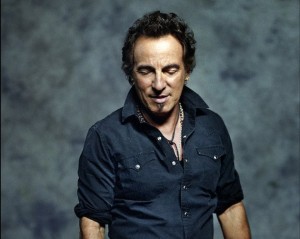 Jazz Fest artists in the news:
Jazz Fest artists in the news:
— TheNation.com recently ran a passage on the growth of Bruce Springsteen‘s (Apr. 29, Acura Stage, 4:30 p.m.) political voice from an upcoming book by Eric Alterman. In it, Alterman writes:
The shock of such success led Springsteen to pull back again and inspired a long period of fitful personal growth and therapy, marriage, divorce and a second marriage; breaking up his band and then reconstituting it, moving to Los Angeles and then back again to New Jersey. During this period he would occasionally emerge with musical statements that sometimes spoke to the country’s cultural/political moment and sometimes stood outside it. He took part in a worldwide tour for Amnesty International. When Springsteen wrote and sang “Streets of Philadelphia,” he became the first prominent male singer to explicitly adopt the voice of a gay man. His largely acoustic 1995 album, The Ghost of Tom Joad, was a self-conscious re-creation of John Steinbeck’s (and John Ford’s) proletarian masterpiece The Grapes of Wrath, with songs drawn directly from stories in the newspapers. With its descriptions of railroad transients, people around a fire under a bridge, homeless people waiting in line for shelter and families sleeping in their car, the album was an implicit rebuke to the corporate-friendly politics of “triangulation” practiced by Bill Clinton at the time. Appropriately, Springsteen chose as his next cause that of legalizing (and honoring) Latino immigration, fighting against a proposed extremely punitive California law—Proposition 187—which united him with farmworkers, home workers and others who had hitherto been merely the subject of his songs.
After a nearly fourteen-year break, Springsteen reconstituted the E Street Band in 1999 for a reunion tour and premiered the song “American Skin (41 Shots),” a pointed racial commentary in the aftermath of the shooting of Amadou Diallo, an unarmed Guinean immigrant, and the acquittal of four police officers who had fired at him forty-one times. The song angered some fans, particularly policemen, and once again he was roundly misinterpreted. The lyrics were actually sympathetic to the officers, but their representatives denounced Springsteen, and quite a few beat cops booed the song when he performed it in concert. It was his first taste of a fan backlash, but he held his ground. (Springsteen played it on night one in Philadelphia after explaining, “This is for Trayvon.”)
— Ziggy Marley (May 4, Congo Square Stage, 5:35 p.m.) recently spoke about politics and Marley, the documentary on his father that will show in New Orleans this weekend at the Prytania Sunday night at 9:
[youtube]http://www.youtube.com/watch?v=-50cYDAiSi0[/youtube]




